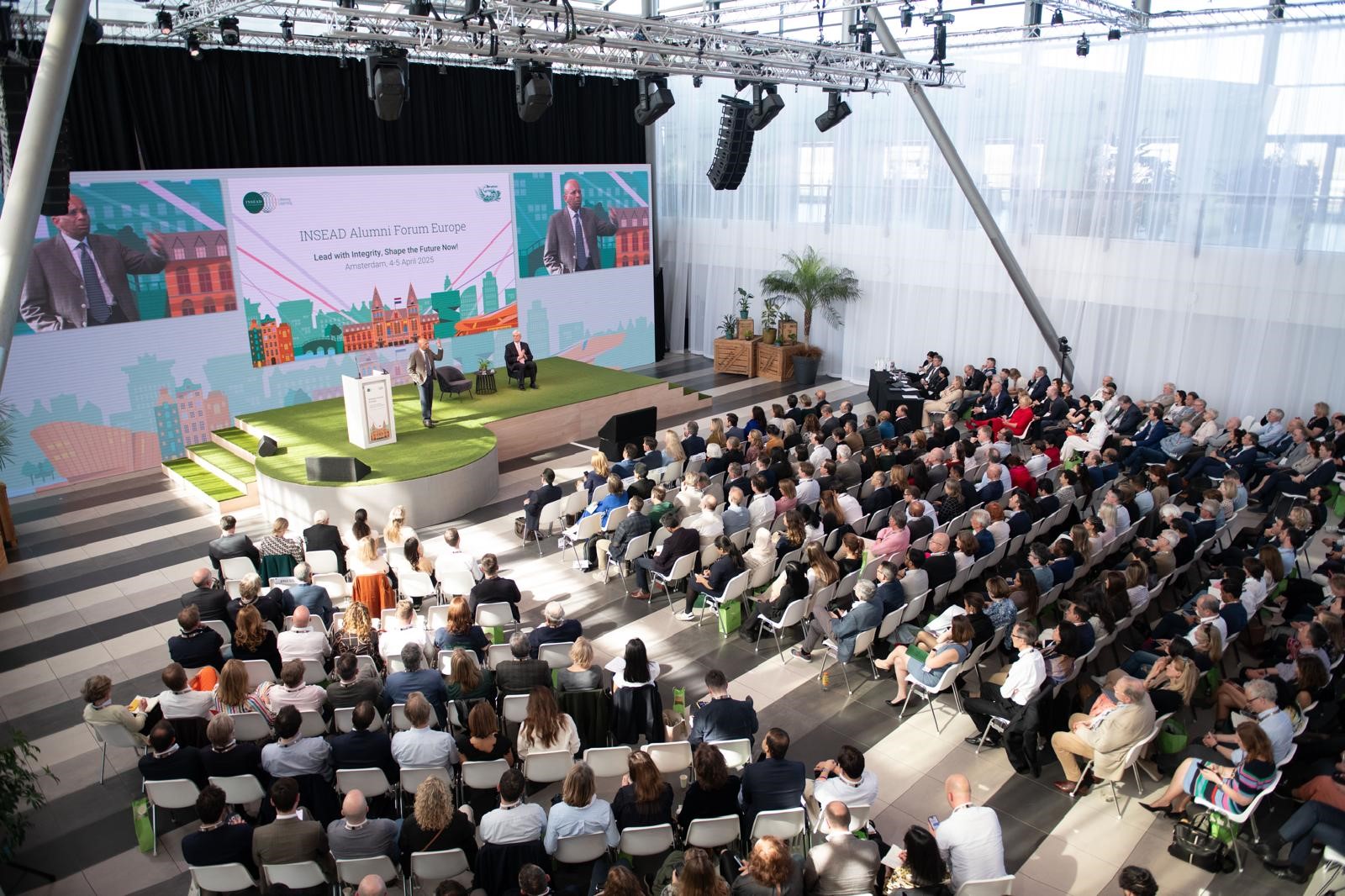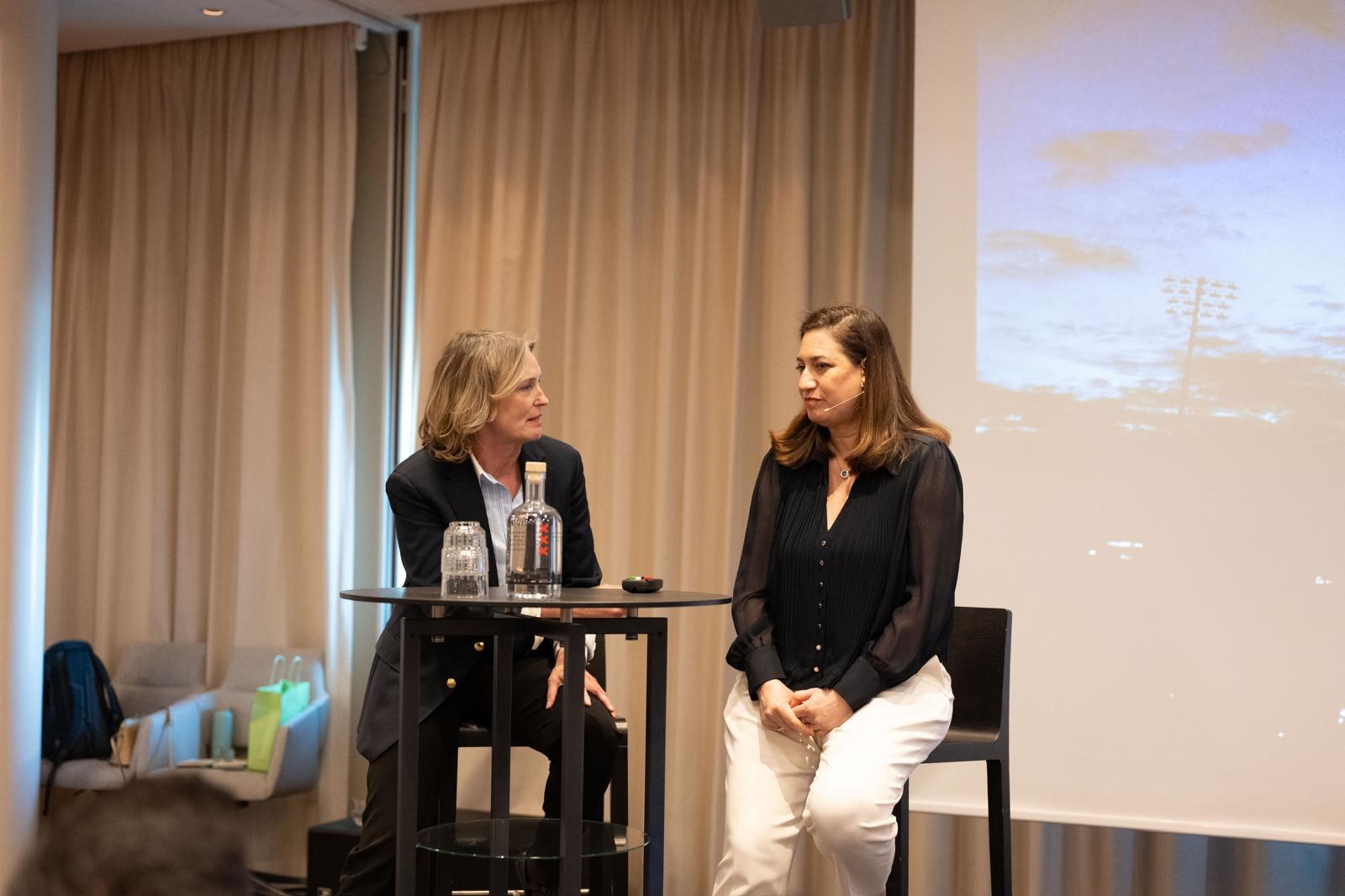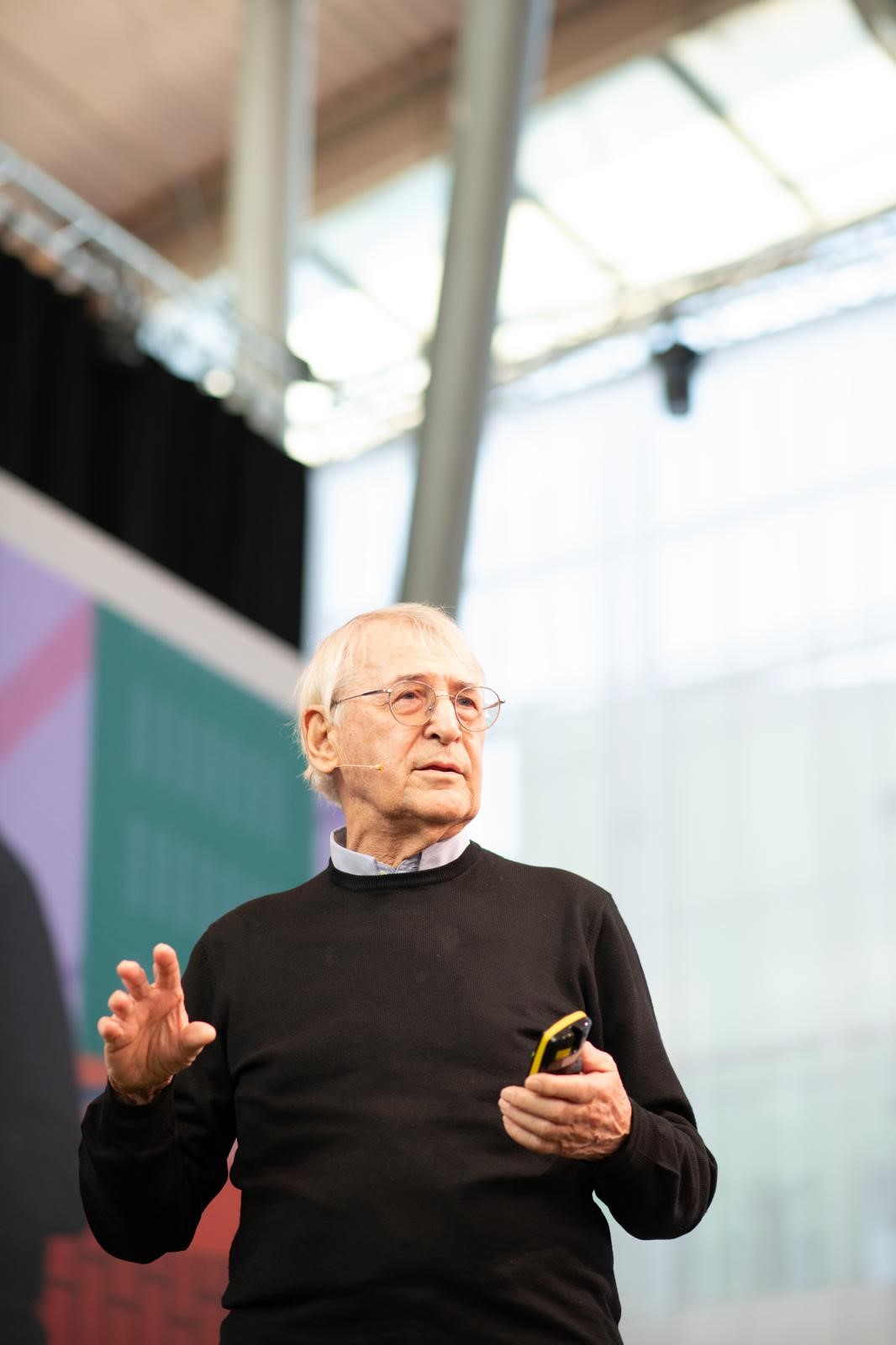
This year’s INSEAD Alumni Forum “Lead with Integrity: Shape the Future Now” was hosted on April 4- 5 at the Passenger Terminal in Amsterdam, the Netherlands. Over two days a record number of 1200+ participants took part in a mix of key notes, breakout sessions and networking events centred around 4 key themes: Leadership, Technology, Water and Food. All conversations had an element of sustainability showcasing the integration of sustainability within the INSEAD Alumni community as well as reflecting the priorities and mindset of the Dutch NAA. While respecting the deployed Chatham House rules here are just some of the key sustainability insights.
The forum was opened with a fireside chat Dean of Degree Programmes, Economics Professor Mark Stabile and H.M. Queen Máxima of the Netherlands (United Nations Secretary-General’s Special Advocate for Financial Health). The conversation was on the topic of financial health. Before 2009, less than 50% of the world's population had access to financial inclusion, now over 82% have access. However, they discussed how financial inclusion doesn’t equate to financial health. Financial health is related to wider wellbeing as outcome. According to Deloitte, 60% of world population bank with at least 3 different banks. As a result of this complexity in managing money, people needed to be aided a lot more in journey to financial health. They discussed the excitement for open finance, which is the responsible access to individual and business customer data across a wide range of financial services to help manage money across several accounts.
Professor Subramanian Rangan led the Faculty Session on Thought Leadership with Ramón Mendiola. They spoke on how to shift business as a force to business as a force for good. They shared how sustainability doesn’t mean less profitability. They gave an example of how merging business strategy with CSR strategy to create a triple bottom-line orientated company (taking care of financial, social and environmental performances) led to a x7 growth in revenues and profitability. They also shared a 'recipe' or checklist to achieve this integration:
- Engage with stakeholders every year. They are the ones which will speak most honestly.
- Secure buy in of leadership and board members
- Send clear objectives with clear KPIs and have KPIs on the environmental and social footprint
- Align the compensation of leaders and executive committee with achieving all 3 strategies
- Make your commitments public
They reminded us that every time costs are minimised there maybe harm and stressed that the paradigm of business has to change and we must redo profit function. Business theory needs to be better. They argued that we should look at process innovation in place of product innovation. Rangan and Mendiola emphasised the importance of leadership which goes beyond innovation and internalisation to integration by embedding a triple bottom line, people, planet, profit.
Our Executive Director Katell Le Goulven welcomed Georgina Grenon MBA'99J, Ex-Sustainability Director, Paris 2024, to present the study of the Paris 2024 games in one of the breakout sessions. She highlighted the leadership qualities which led the Paris 2024 Games to be the most sustainable in the history of the event as well as some of the incredible results achieved such as 90% circularity on 6 million items and 100% of all energy from grid that was used was renewable. You can read the Paris 2024 Games Sustainability Report for more information.
On day 2, Monique Lempers, Chief Impact Officer at Fairphone gave a keynote sharing the story of the impact driven business in the electronics manufacturing. Currently, electronic waste (e-waste) is the world's fastest growing waste stream. There was a record of 62 million tonnes of waste in 2022, the equivalent of 100,000 airplanes, a number which is set to rise to 82 million metric tonnes by 2030. As it stands only 20% of this waste is recycled. Fairphone works to extends the lifecycle of their products and reshape supply chain from inside out. They work to make their products more repairable and aim to double the lifespan of smart phones.
Two other highlights included INSEAD’s Manfred Kets de Vries, the Distinguished Clinical Professor of Leadership Development and Organisational Change and the Raoul de Vitry d'Avaucourt Chaired Professor of Leadership Development, Emeritus, delivering a session on ‘Exploring the Leader Within’. He explored what makes a reflective leader, including the 7C model of leadership. In the interactive session he underscored the need to ‘belong’ and urged participants to work towards a fulfilled life. The forum also saw Mila Lukic MBA’12D awarded the INSEAD Alumni Force for Good award for her work as Founder and CEO of Bridges Outcomes Partnership. BOP uses social outcomes contracts to increase impact and create over £1.54bn of public value in the UK. Find out more about Bridges and the work Lukic is doing on outcomes contracts in our Mission to Change podcast.
Throughout the two-day event, the consistent message was clear: embedding sustainability requires leaders who are humane, courageous, and ethical at every level of every organisation. The active participation of our alumni provides optimism and confidence that we can all contribute to meaningful progress.
Subscribe to our Hoffmann Institute Quarterly Newsletter
Stay informed on our 60 second quarterly video updates, stories, video recordings of our webinars, and details of upcoming events and much more.




